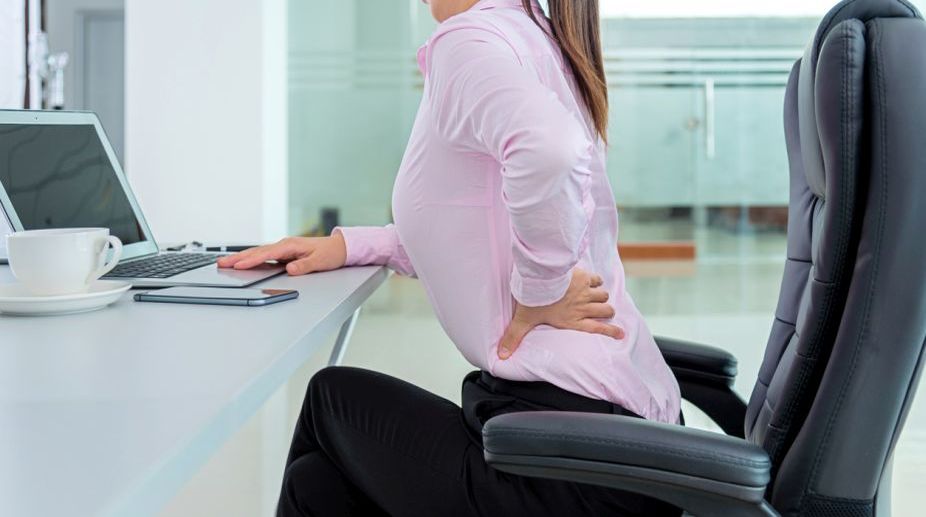Engineers in the US have designed a smart, mechanised undergarment that may help prevent lower back pain by reducing muscle fatigue.
While solutions for back pain are aplenty, most of them have at least one of three problems — they are unproven, unworkable or just plain unattractive.
Advertisement
"People are often trying to capitalise on a huge societal problem with devices that are unproven or unviable," said co-investigator Aaron Yang from Vanderbilt University Medical Center in Nashville, Tennessee, US.
"This smart clothing concept is different. I see a lot of health care workers or other professionals with jobs that require standing or leaning for long periods. Smart clothing may help offload some of those forces and reduce muscle fatigue," Yang said.
The device, unveiled at the Congress of the International Society of Biomechanics in Brisbane, Australia, consists of two fabric sections, made of nylon canvas, Lycra, polyester and other materials, for the chest and legs.
The sections are connected by sturdy straps across the middle back, with natural rubber pieces at the lower back and glutes.
The device is designed so that users engage it only when they need it. A simple double tap to the shirt engages the straps.
When the task is done, another double tap releases the straps so the user can sit down, and the device feels and behaves like normal clothes.
The device also can be controlled by an app that the team created – users tap their phones to engage the smart clothing wirelessly via Bluetooth.
In experiments, the participants tested the device leaning forward and lifting 11-kg and 25-kg weights while holding their position at 30, 60 and 90 degrees.
Using motion capture, force plates and electromyography, the team demonstrated that the device reduced activity in the lower back extensor muscles by an average of 15 to 45 per cent for each task.
The focus of this new technology is not for treating those with existing back pain but focuses on prevention by reducing stress and fatigue on the low back muscles, Yang said.











